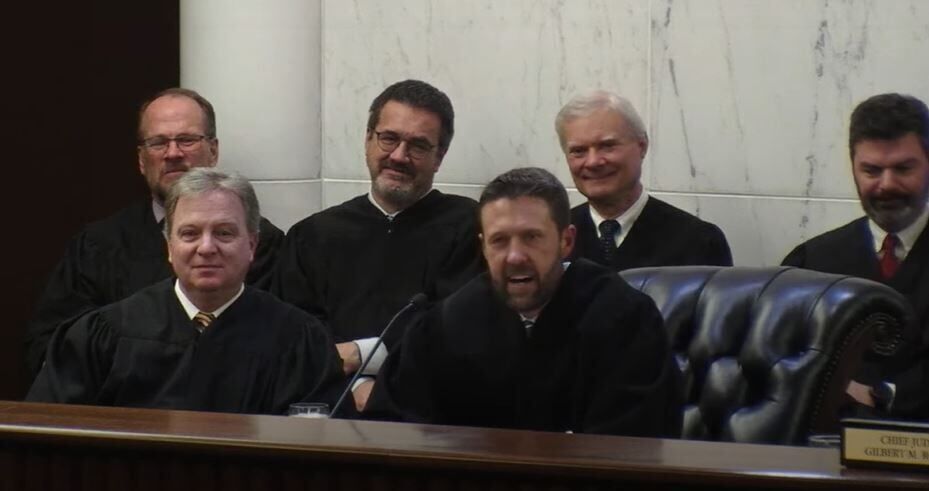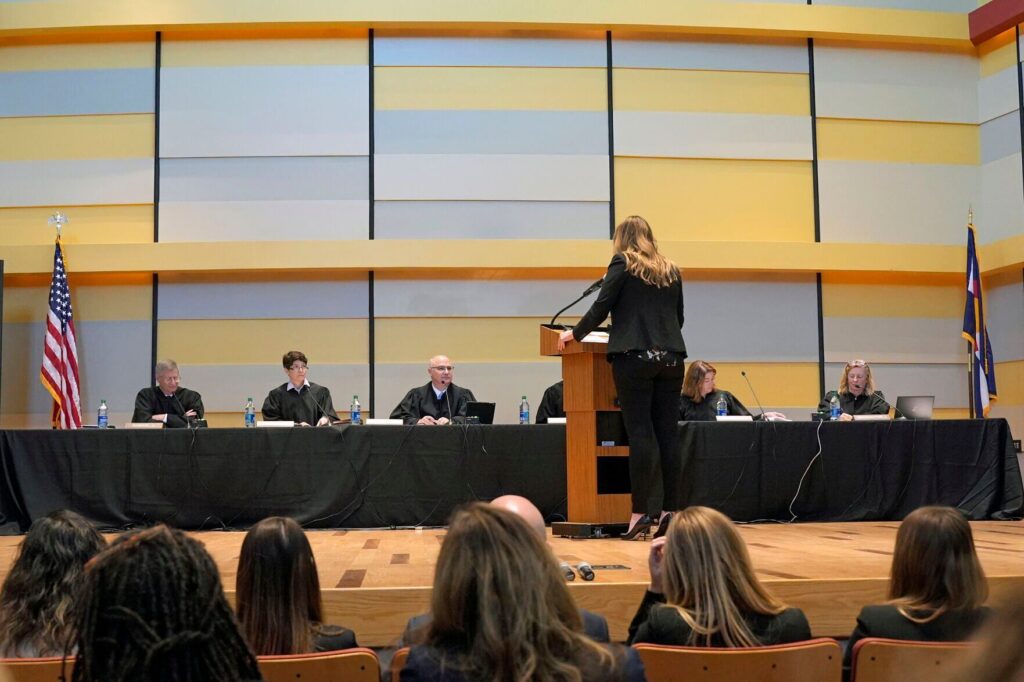Election-related defamation case goes to jury, federal judges unveil ‘civility code’ | COURT CRAWL
Welcome to Court Crawl, Colorado Politics’ roundup of news from the third branch of government.
A defamation lawsuit over allegations of election rigging is now in the hands of a jury, plus Colorado’s federal trial judges have adopted a nonbinding “civility code” for lawyers.
Coomer v. Lindell
• As readers will recall, Eric Coomer, a former executive with Denver-based Dominion Voting Systems, filed a series of defamation lawsuits against conservative figures who broadcast an uncorroborated story that he allegedly admitted to fixing the 2020 presidential election against Donald Trump. After two weeks of testimony, a jury is currently deliberating whether MyPillow CEO and Trump supporter Mike Lindell is liable for defamation. Here are some of the developments:
MyPillow CEO testifies in Denver defamation trial Monday
Jury begins deliberations in MyPillow CEO Mike Lindell’s defamation trial
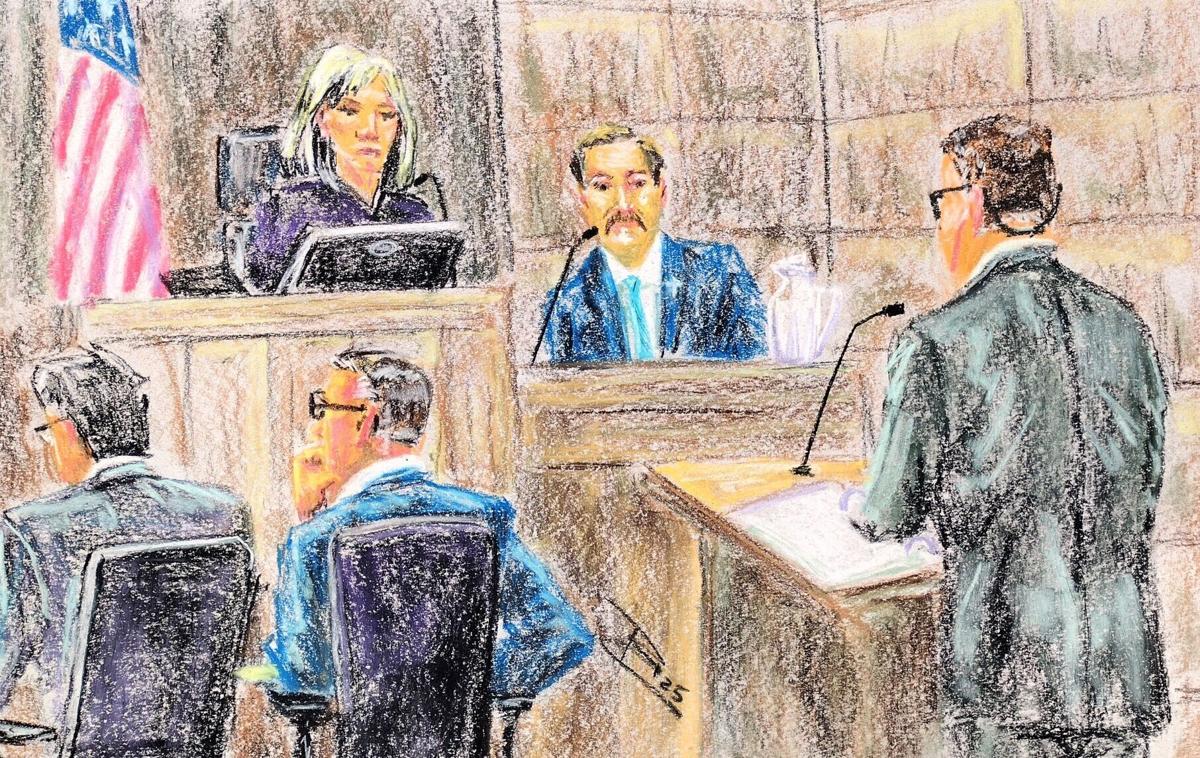
MyPillow CEO Mike Lindell testifies in a federal defamation lawsuit case Monday in U.S. District Court in Denver. (Sketch by Robyn Cochran-Ragland)
Sketch by Robyn Cochran-Ragland
Civility code
• A group of federal judges appeared before lawyers who practice in Colorado’s U.S. District Court to announce there’s a new “civility code” posted to the court’s website. It’s a nonbinding “statement of policy” that provides guidance for acting professionally — something the judges say they are seeing less of.
• “It feeds on itself. One lawyer in a case starts with snarky comments in the briefs or the motions, the other side may try to sneak in something,” said Senior Judge William J. Martínez. “Unfortunately, where I see it most often is with out-of-town counsel.”
• “I like to tell lawyers, just because you can do the things doesn’t mean you should do the things,” said Judge S. Kato Crews, alluding to overly confrontational behavior during litigation. “That’s how I think of exercising your judgment.”
In Supreme Court news
• By 4-3, the Colorado Supreme Court determined a grandparent is no longer legally a “grandparent” who can seek visitation rights to their grandchild after a new set of parents has officially adopted them.
• When suing the government for injuries caused by a hazard in a public building, the Supreme Court concluded plaintiffs have to show they are likely to succeed at the outset so as to override governmental immunity.
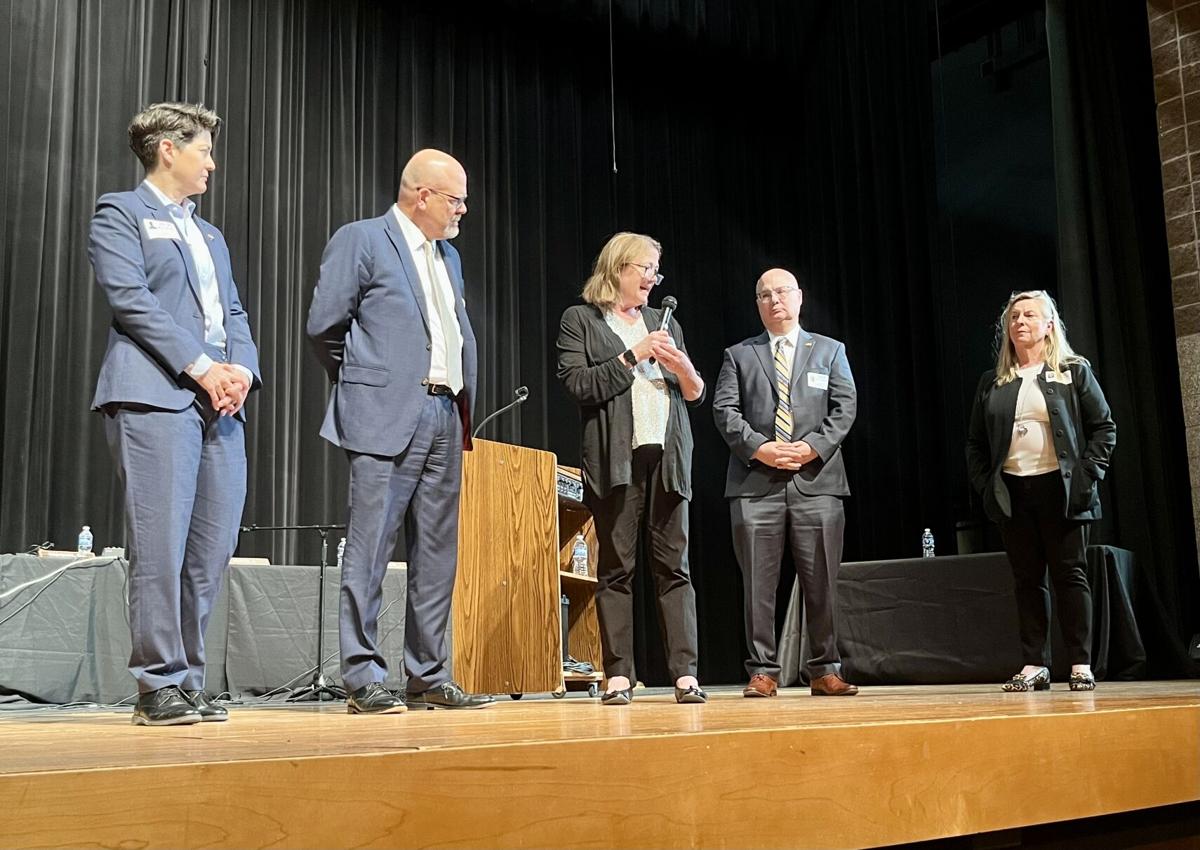
Members of the Colorado Supreme Court during a "Courts in the Community" visit to Falcon High School in Peyton, Colo. on May 15, 2025. From left to right: Chief Justice Monica M. Márquez and Justices William W. Hood III, Melissa Hart, Brian D. Boatright and Maria E. Berkenkotter.
Michael Karlik michael.karlik@coloradopolitics.com
• The Supreme Court confirmed that witnesses in a campus sexual misconduct proceeding are protected for any defamatory statements they may make about the accused student.
• Any legal challenge to the withholding of data about former DNA scientist Yvonne “Missy” Woods‘ misconduct must be brought in Jefferson County, where the Colorado Bureau of Investigation is located, the Supreme Court clarified.
• The justices will hear an appeal that questions the relevance of certain evidence about prior and planned bondage activity between the defendant and his victim, and the court may also intervene in an evidentiary dispute out of a cold-case murder prosecution.
Heard on appeal
• The state’s board of education acted within its authority by creating a performance category of “partially effective” that can be used to designate a teacher as “ineffective,” the Court of Appeals decided.
• A Denver judge made a custody decision without giving proper notice to the father that she’d be making a decision, the Court of Appeals found in overturning the order.
In federal news
• The U.S. Court of Appeals for the 10th Circuit, which is generally hostile to rehearing cases with the court’s full membership, voted 9-3 not to reconsider a prior panel decision in favor of a transgender plaintiff in her constitutional rights lawsuit alleging sex discrimination.
• Judge Timothy M. Tymkovich, writing for himself and two other appointees of Republican presidents, advocated for resolving the tension between the need to closely scrutinize sex discrimination and giving jails broad authority to classify detainees according to sex assigned at birth. He suggested the U.S. Supreme Court should weigh in.
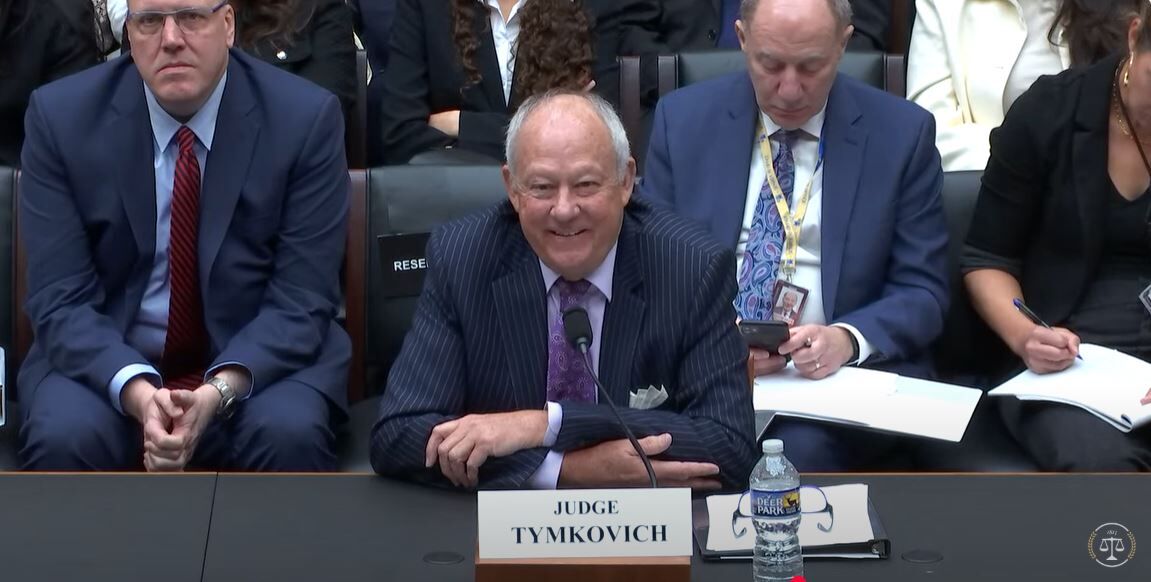
Judge Timothy M. Tymkovich of the U.S. Court of Appeals for the 10th Circuit speaks about the need for more federal judges during a hearing of the U.S. House Judiciary Subcommittee on Courts, Intellectual Property, and the Internet on Feb. 25, 2025.
• A man who brought his otherwise-confidential arbitration dispute into federal court can’t continue to expect the proceedings will remain shielded from public view, a judge ruled.
• A Sterling police officer searched a motorist for weapons without reasonably suspecting he was armed and dangerous, a federal judge ruled in finding a constitutional violation.
• An incarcerated plaintiff may not proceed with his claim that a doctor violated his constitutional rights by puncturing his unnumbed eyeball with a needle.
Vacancies and appointments
• The governor has appointed Phillips County Court Judge Kimbra L. Killin to the 13th Judicial District Court, where she succeeds former Judge Justin B. Haenlein.
• The lieutenant governor, in her authority as acting governor, appointed civil litigator Richard E. Schmittel Jr. to a newly created seat on the La Plata County Court.
• There are three finalists to succeed retiring District Court Judge Marcelo A. Kopcow on the Weld County District Court: Magistrate Annette J. Kundelius, Sean James Lacefield and Eang Muy Man.
• There are two candidates to succeed retiring Elbert County Court Judge Palmer L. Boyette: Rory Neil Devlin and Holly Ann Gummerson.
• Applications are due by July 23 to succeed retiring District Court Judge Suzanne F. Carlson in the Sixth Judicial District (Archuleta, La Plata and San Juan counties).
• Applications are also due by July 30 to succeed retiring District Court Judge Robert Lung in the 23rd Judicial District (Douglas, Elbert and Lincoln counties).
Miscellaneous proceedings
• Arapahoe County commissioners approved funding for prosecutors to handle the anticipated shift of domestic violence cases from Aurora Municipal Court into the state court system.
Colorado Politics Must-Reads:






